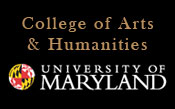


| New
Directions: Exploring Identity in the Early Modern Period
Abstract: Lucy Hutchinson: Republicanism, Gender and Politics. Presented by: David Norbrook, English The life and writings of Lucy Hutchinson (1620-81/2) offer an interesting test case for a number of current debates about politics and identity. She was a republican, committed to an ideology that was to some degree universalizing and to a regime which claimed to be an example to other countries to overthrow enslavement to monarchy. Her writings are pervaded with an imagery of true and false perspectives: inverting the familiar language of the Stuart court masque, she argues that the true, universal perspective will reveal not a divine-right monarch but only the heavenly king. Current theory suspects such universalization as a mask for particular interests, and such a case is not hard to make. The republic installed a limited oligarchy and presented itself as a champion of English identity against the Scots and Irish; it simultaneously denounced treating the English as slaves and opened up the Atlantic slave trade. The imagery of the penetrating gaze can be seen as patriarchal in character and as reinforcing an elitism of the elect over those of inferior vision. Hutchinson was involved in these issues: she stemmed from families with strong Irish and colonial interests; and she combined great ambitions as writer with a firm conviction that a true gaze was difficult for any woman to attain. I shall explore some of these contradictions in relation to specific passages of her writings. I shall argue that while the postmodern critique of universality has made us more sensitive to some of them, it risks introducing its own kinds of suppression which have made it in some ways harder to understand the political agency of figures like Hutchinson. |
|

